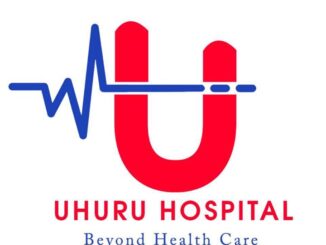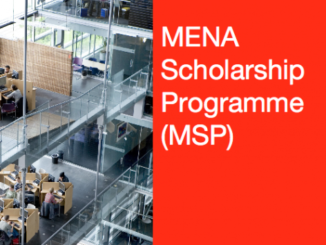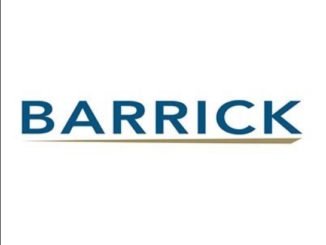JIUNGE NASI WHATSAPP TU FOLLOW. BONYEZA HAPANafasi za kazi UNDP/UN Women- Co-ordination Analyst August 2020
UN Women, grounded in the vision of equality enshrined in the Charter of the United Nations, works for the elimination of discrimination against women and girls; the empowerment of women; and the achievement of equality between women and men as partners and beneficiaries of development, human rights, humanitarian action and peace and security. UN Women Tanzania is implementing its Strategic Note (2017-2021), the successful achievement of which requires strategic support for programmatic level coordination on a number of key areas.1. The Women’s Leadership and Political Participation Project (Wanawake Wanaweza) Phase II promotes gender equality and the empowerment of women as per UN Women’s global mandate and supports the Government of Tanzania as a Member State to the United Nations to implement international standards, providing suitable technical and financial assistance. This second phase of the project aims to achieve the overarching goal/impact “Women lead and participate in decision-making at all levels”. The project comprises two essential coordination mechanisms: 1) The Steering Committee with representation of Development Partners, the National Gender Machinery and Responsible Parties, provides strategic direction to the project; 2) The Technical Committee is composed of Responsible parties with the aim of enhancing collaboration and synergies. Additionally, within the United National Development Assistance Programme (UNDAP), UN Women leads the Outcome Group on Women’s Leadership and Political Participation (WLPP OG) within the Thematic Results Group on Governance, Human Rights and Gender Equality. With the UN in the last year of UNDAP II implementation a key task for the WLPP OG will be to contribute to the development of a Country Gender Equality Profile (CGPE) and other strategic processes which will inform the next UN Sustainable Development Corporation Framework (UNSDCF).
2. The UN Tanzania COVID-19 Coordination Framework was established early in the pandemic and includes three pillars: Public Health, Socio-Economic Impact and Leaving No One Behind (LNOB). Each pillar is co-led by two UN Agencies, with UN Women and UNFPA leading the LNOB pillar. The framework was designed to secure a comprehensive overview of all related activities within the UNDAP II structure, as well as coordinate short-term and longer-term response and recovery efforts. To date this has included drafting an Emergency Appeal and developing a Socio-Economic Response Framework (which is currently ongoing) and will continue with other upcoming strategic opportunities.
3. On behalf of the UN Country Team in Tanzania, UN Women chairs the Prevention of Sexual Exploitation and Abuse Network (PSEA Network). The network coordinates UN Agency efforts to implement the Secretary-General’s Bulletin on Special Measures for Protection from Sexual Exploitation and Sexual Abuse (ST/SGB/2003/13). Within this role as chair of the network, UN Women serves as secretariat, hosting regular meetings and overseeing a joint workplan to support Agency initiatives to meet the minimum operating standards (MOS) required and coordinating with the Kigoma network.
Reporting jointly to the WLPP Programme Manager and the UN Women Country Representative, the Coordination Analyst will provide support to WLPP Programme colleagues, UN Women and UNCT PSEA focal points and Leaving No One Behind Pillar within the Socio-Economic Framework to support the key areas of coordination mentioned above. Within this context, UN Women Tanzania seeks the services of a qualified and experienced consultant that will assist with the following tasks:
DUTIES AND RESPONSIBILITIES
- Ensure efficient coordination and management of the WLPP Project Phase II Steering Committee and Technical Committees, including information management and communication with the members. Coordination of WLPP OG’s inputs in UNDAP processes;
- Preparation and planning for WLPP meetings to ensure efficient coordination and management of the UNDAP WLPP OG including information management and communication with the members; actively support the chair and relevant members and the development of annual work plans and reports;
- Oversee WLPP OG contributions, including written inputs, to the development of a CGPE and other joint processes to develop the new next UNSDCF as needed;
- Ensure efficient coordination and management of the LNOB Pillar, including consolidating, actively supporting the co-leads and drafting written inputs for key strategic and fundraising processes and communication with members;
- Ensure efficient coordination and management of the PSEA Network, including overseeing the work planning and reporting, actively supporting the chair and deputy and communication with members. Coordination of UN Women’s progress towards the PSEA-MOS;
- Support knowledge management initiatives on WLPP, PSEA and LNOB; and coordinate and participate in different fora for exchange of knowledge management;
- Support WLPP, PSEA and LNOB discussions, joint advocacy and coordination on strategic issues and processes including the UN COVID-19 socio-economic framework, Sustainable Development Goals, development of Country Gender Equality Profile and key policy processes.
Key Deliverables:
- Minutes, workplans, supporting documentation for WLPP Steering Committees, Technical Committees, Outcome Group meetings.
- Written contributions for the CGEP chapter on WLPP.
- Minutes, workplans, supporting documentation for PSEA network and LNOB Pillar meetings.
- Background materials, presentations and reports to support the good functioning of the UN Women led WLPP, PSEA and LNOB coordination mechanisms.
- Written inputs for UN join and UN Women agency reporting on WLPP, PSEA and LNOB.
- Knowledge management/consolidation of good practices.
- Notes to file on external and internal meetings attended.
- Documentary evidence of substantial contribution to knowledge products, resource mobilization and strategic processes.
Fees and terms of payments:
Payment will be made monthly, upon submission of monthly progress report on deliverables.
COMPETENCIES
Technical Expertise:
- Understands advanced concepts of UN coordination
- Continues to seek new and improved methods and systems for accomplishing his/her work
- Keeps abreast of new developments in coordination and seeks to develop him/herself professionally;
- Demonstrates comprehensive knowledge of information technology and applies it in work assignments.
Core Values:
- Respect for Diversity
- Integrity
- Professionalism
- Cultural sensitivity
Core Competencies:
- Demonstrate and safeguard ethics and integrity
- Awareness and Sensitivity Regarding Gender Issues
- Accountability
- Creative Problem Solving
- Effective Communication
- Inclusive Collaboration
- Stakeholder Engagement
- Leading by Example
Functional Competencies
- Extensive knowledge of international gender and women’s rights standards;
- Strong analytical and drafting skills;
- Ability to adapt to different environments (cultural, economic, political and social);
- Demonstrate professional competence and is conscientious and efficient in meeting commitments, observing deadlines and achieving results;
- Demonstrate excellent interpersonal skills, as well as the ability to communicate effectively with all stakeholders and to present ideas clearly and effectively;
- Computer literacy and ability to effectively use office technology equipment, IT tools;
- Demonstrate commitment to upholding and promoting the values of the United Nations in actions and decisions, in line with the UN Code of Conduct;
- Create and promote an environment for open and effective communication;
- Share knowledge and build a culture of knowledge sharing and learning;
- Be strong team player.
REQUIRED SKILLS AND EXPERIENCE
Education:
- Masters’ Degree in Development Studies or Social Sciences, or other relevant field. Gender or Human Rights Studies a strong advantage.
Experience:
- At least five years of experience in development co-operation/management with at least three in the area of women’s rights, gender equality and gender mainstreaming.
- Previous international and country level experience with the United Nations, preferably on UN interagency coordination and reform – delivering as one or joint programming.
- Experience in working with multiple stakeholders and multi-sectoral responses essential: DPs, governments, and civil society/NGOs, on gender issues and gender mainstreaming.
- Experience in project/programme development/planning, monitoring and reporting essential.
- Familiarity with UN Women and its mandate and strategic priorities a strong advantage.
- Knowledge of the UN and RC systems a strong advantage.
Language Requirements:
Fluency in both written and spoken English (English as a native language is a strong advantage).
Application Procedure:
The following documents must be submitted as part of the application:
A letter of interest outlining suitability and availability for the assignment;
A UN Women Personal History form (P-11) which can be downloaded at http://www.unwomen.org/about-us/employment, including highlighted references to previous relevant work;
Applications without the completed UN Women P-11 form will be treated as incomplete and will not be considered for further assessment
A financial offer in the form of a lump sum monthly payment for completion of the required tasks after certification of deliverables, including the daily rate used for calculations.
UNDP is committed to achieving workforce diversity in terms of gender, nationality and culture. Individuals from minority groups, indigenous groups and persons with disabilities are equally encouraged to apply. All applications will be treated with the strictest confidence. UNDP does not tolerate sexual exploitation and abuse, any kind of harassment, including sexual harassment, and discrimination. All selected candidates will, therefore, undergo rigorous reference and background checks.
The deadline for submitting the application is 05 September, 2020.
JIUNGE GROUP LETU LA TELEGRAM. BONYEZA HAPA
1. The Women’s Leadership and Political Participation Project (Wanawake Wanaweza) Phase II promotes gender equality and the empowerment of women as per UN Women’s global mandate and supports the Government of Tanzania as a Member State to the United Nations to implement international standards, providing suitable technical and financial assistance. This second phase of the project aims to achieve the overarching goal/impact “Women lead and participate in decision-making at all levels”. The project comprises two essential coordination mechanisms: 1) The Steering Committee with representation of Development Partners, the National Gender Machinery and Responsible Parties, provides strategic direction to the project; 2) The Technical Committee is composed of Responsible parties with the aim of enhancing collaboration and synergies. Additionally, within the United National Development Assistance Programme (UNDAP), UN Women leads the Outcome Group on Women’s Leadership and Political Participation (WLPP OG) within the Thematic Results Group on Governance, Human Rights and Gender Equality. With the UN in the last year of UNDAP II implementation a key task for the WLPP OG will be to contribute to the development of a Country Gender Equality Profile (CGPE) and other strategic processes which will inform the next UN Sustainable Development Corporation Framework (UNSDCF).
2. The UN Tanzania COVID-19 Coordination Framework was established early in the pandemic and includes three pillars: Public Health, Socio-Economic Impact and Leaving No One Behind (LNOB). Each pillar is co-led by two UN Agencies, with UN Women and UNFPA leading the LNOB pillar. The framework was designed to secure a comprehensive overview of all related activities within the UNDAP II structure, as well as coordinate short-term and longer-term response and recovery efforts. To date this has included drafting an Emergency Appeal and developing a Socio-Economic Response Framework (which is currently ongoing) and will continue with other upcoming strategic opportunities.
3. On behalf of the UN Country Team in Tanzania, UN Women chairs the Prevention of Sexual Exploitation and Abuse Network (PSEA Network). The network coordinates UN Agency efforts to implement the Secretary-General’s Bulletin on Special Measures for Protection from Sexual Exploitation and Sexual Abuse (ST/SGB/2003/13). Within this role as chair of the network, UN Women serves as secretariat, hosting regular meetings and overseeing a joint workplan to support Agency initiatives to meet the minimum operating standards (MOS) required and coordinating with the Kigoma network.
Reporting jointly to the WLPP Programme Manager and the UN Women Country Representative, the Coordination Analyst will provide support to WLPP Programme colleagues, UN Women and UNCT PSEA focal points and Leaving No One Behind Pillar within the Socio-Economic Framework to support the key areas of coordination mentioned above. Within this context, UN Women Tanzania seeks the services of a qualified and experienced consultant that will assist with the following tasks:
DUTIES AND RESPONSIBILITIES
- Ensure efficient coordination and management of the WLPP Project Phase II Steering Committee and Technical Committees, including information management and communication with the members. Coordination of WLPP OG’s inputs in UNDAP processes;
- Preparation and planning for WLPP meetings to ensure efficient coordination and management of the UNDAP WLPP OG including information management and communication with the members; actively support the chair and relevant members and the development of annual work plans and reports;
- Oversee WLPP OG contributions, including written inputs, to the development of a CGPE and other joint processes to develop the new next UNSDCF as needed;
- Ensure efficient coordination and management of the LNOB Pillar, including consolidating, actively supporting the co-leads and drafting written inputs for key strategic and fundraising processes and communication with members;
- Ensure efficient coordination and management of the PSEA Network, including overseeing the work planning and reporting, actively supporting the chair and deputy and communication with members. Coordination of UN Women’s progress towards the PSEA-MOS;
- Support knowledge management initiatives on WLPP, PSEA and LNOB; and coordinate and participate in different fora for exchange of knowledge management;
- Support WLPP, PSEA and LNOB discussions, joint advocacy and coordination on strategic issues and processes including the UN COVID-19 socio-economic framework, Sustainable Development Goals, development of Country Gender Equality Profile and key policy processes.
Key Deliverables:
- Minutes, workplans, supporting documentation for WLPP Steering Committees, Technical Committees, Outcome Group meetings.
- Written contributions for the CGEP chapter on WLPP.
- Minutes, workplans, supporting documentation for PSEA network and LNOB Pillar meetings.
- Background materials, presentations and reports to support the good functioning of the UN Women led WLPP, PSEA and LNOB coordination mechanisms.
- Written inputs for UN join and UN Women agency reporting on WLPP, PSEA and LNOB.
- Knowledge management/consolidation of good practices.
- Notes to file on external and internal meetings attended.
- Documentary evidence of substantial contribution to knowledge products, resource mobilization and strategic processes.
Fees and terms of payments:
Payment will be made monthly, upon submission of monthly progress report on deliverables.
COMPETENCIES
Technical Expertise:
- Understands advanced concepts of UN coordination
- Continues to seek new and improved methods and systems for accomplishing his/her work
- Keeps abreast of new developments in coordination and seeks to develop him/herself professionally;
- Demonstrates comprehensive knowledge of information technology and applies it in work assignments.
Core Values:
- Respect for Diversity
- Integrity
- Professionalism
- Cultural sensitivity
Core Competencies:
- Demonstrate and safeguard ethics and integrity
- Awareness and Sensitivity Regarding Gender Issues
- Accountability
- Creative Problem Solving
- Effective Communication
- Inclusive Collaboration
- Stakeholder Engagement
- Leading by Example
Functional Competencies
- Extensive knowledge of international gender and women’s rights standards;
- Strong analytical and drafting skills;
- Ability to adapt to different environments (cultural, economic, political and social);
- Demonstrate professional competence and is conscientious and efficient in meeting commitments, observing deadlines and achieving results;
- Demonstrate excellent interpersonal skills, as well as the ability to communicate effectively with all stakeholders and to present ideas clearly and effectively;
- Computer literacy and ability to effectively use office technology equipment, IT tools;
- Demonstrate commitment to upholding and promoting the values of the United Nations in actions and decisions, in line with the UN Code of Conduct;
- Create and promote an environment for open and effective communication;
- Share knowledge and build a culture of knowledge sharing and learning;
- Be strong team player.
REQUIRED SKILLS AND EXPERIENCE
Education:
- Masters’ Degree in Development Studies or Social Sciences, or other relevant field. Gender or Human Rights Studies a strong advantage.
Experience:
- At least five years of experience in development co-operation/management with at least three in the area of women’s rights, gender equality and gender mainstreaming.
- Previous international and country level experience with the United Nations, preferably on UN interagency coordination and reform – delivering as one or joint programming.
- Experience in working with multiple stakeholders and multi-sectoral responses essential: DPs, governments, and civil society/NGOs, on gender issues and gender mainstreaming.
- Experience in project/programme development/planning, monitoring and reporting essential.
- Familiarity with UN Women and its mandate and strategic priorities a strong advantage.
- Knowledge of the UN and RC systems a strong advantage.
Language Requirements:
Fluency in both written and spoken English (English as a native language is a strong advantage).
Application Procedure:
The following documents must be submitted as part of the application:
A letter of interest outlining suitability and availability for the assignment;
A UN Women Personal History form (P-11) which can be downloaded at http://www.unwomen.org/about-us/employment, including highlighted references to previous relevant work;
Applications without the completed UN Women P-11 form will be treated as incomplete and will not be considered for further assessment
A financial offer in the form of a lump sum monthly payment for completion of the required tasks after certification of deliverables, including the daily rate used for calculations.
UNDP is committed to achieving workforce diversity in terms of gender, nationality and culture. Individuals from minority groups, indigenous groups and persons with disabilities are equally encouraged to apply. All applications will be treated with the strictest confidence. UNDP does not tolerate sexual exploitation and abuse, any kind of harassment, including sexual harassment, and discrimination. All selected candidates will, therefore, undergo rigorous reference and background checks.
The deadline for submitting the application is 05 September, 2020.





Be the first to comment